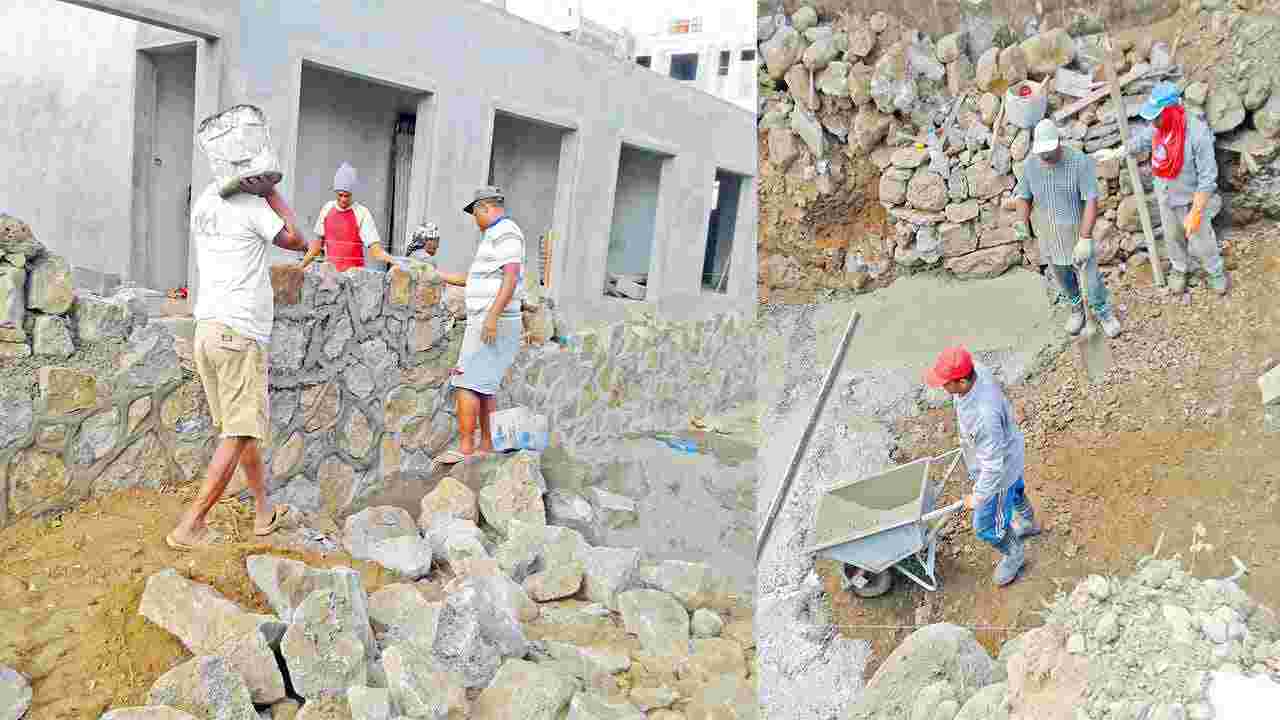
Budget 2016-2017 contains a pack of measures for the construction and real estate sectors. After a couple of gloomy years, the construction sector is set to know a robust boost, much to the delight of builders and entrepreneurs.
In 2014 and 2015, the construction sector contracted by -8.5% and -4.9% respectively. In 2015, the construction and real estate sectors contributed around 10% to GDP. In the same year, FDI in the construction and real estate amounted to MUR 8.5 billion. The construction sector is the 3rd largest employer in the economy with around 46,300 employees, thus absorbing a large percentage of the working population with minimum level of education. The sector has seen severe sluggishness during the last couple of years, mainly due to the ending of major public projects and the lack of private investment as well as delays in the kick off of new public infrastructure projects.
Stone walls and thatched roofs
It’s the new trend. No residential project is complete without some stone adornment or the use of timber and thatched roofs. Stone walls are now very common. The use of stones in the construction industry creates job opportunities for stone masons and artisans, especially where specific skills are required for stone cutting.On the other hand, the increasing use of thatched roof opens up new market for sugarcane dried tops left in fields. Small planters are cashing in on the opportunity. Even stones are extracted from agricultural land and sold out to builders.
The Budget 2016-2017 was seen as an opportune time to boost the sector and various measures have been announced. For example, local buyers are exempted from the payment of registration duty on the acquisition of a new house or a new apartment for an amount not exceeding Rs 6 million. This is applicable over the period 01 September 2016 to 30 June 2020. In addition, it is possible to obtain VAT refund on the construction of a new dwelling or acquisition of a newly built apartment up to a cap of Rs 500,000. The builder need not be VAT- registered and there is no limit on on the maximum floor area but the value of the construction must not exceed Rs 4 million. On the other side, promoters or developers will be exempted from payment of land transfer tax on the sale of residential units valued up to Rs 6 million. This measure will be in force untill 2020. Regarding mortgage loans, there is now no registration duty on secured housing loan up to a maximum value not exceeding Rs 2 million.
The BOI optimist
According to the Board of Investment, after five consecutive years of contraction, the construction sector is expected to achieve a positive growth rate of 1.6% in 2016. The BOI is of the view that a boost in the construction and real estate sector will generate positive spillover on the economy in terms of job creation, demand for construction materials, and linkages with other sectors of the economy including manufacturing and transportation. It further believes that, besides macroeconomic benefits, there will be opportunities for small and medium entrepreneurs to service those residential developments. First time buyers and middle income earners will find it easier to build or acquire a dwelling (house or apartment). Small land owners, who so far have been unable to tap the opportunities offered by the opening of the economy, could embark on upscale residential development to cater for the housing needs.
2 Property Development Scheme
The real estate sector owes its success of the past decade to the opportunities for investment opened to non-citizens. In that context, the Property Development Scheme, launched last year in replacement of the then Integrated Resorts and Real Estate Schemes, has been reviewed. Henceforth, there is no restriction on the maximum extent of land for development of a project. Bu the most important amendment is the removal of the requirement to sell at least 25% of residential units to Mauritian citizens. “Developers were skeptical about this requirement as it was quasi impossible to find Mauritian buyers for expensive luxury residential units within PDS projects, since Mauritian buyers could always buy similar products outside PDS Schemes and at better prices.
Furthermore, Mauritians buying apartments in PDS projects were also subject to the registration duty of 25,000 USD, which was a major barrier,” explains a land promoter. “But there have been cases where locals have purchased IRS or RES properties, mainly for investment purposes, in the hope of a resale in the future at a premium. Indeed, Res or PDS properties appreciate very quickly and demand is always there as many non-citizens look for ready to move properties. These properties can also be rented out to expats so there is always a good return.” Another change is the removal of the maximum limit of 50 acres for developing a PDS project. While this suits large projects requiring vast area of land, this measure is mot welcomed by small developers who foresee higher competition from large players. Lastly, it is now allowed to construct one residential unit on a maximum area of 1.25 acre of land. It should be noted that foreign citizens acquiring residential units in Mauritius for a minimum price of 500,000 USD continue to be eligible for a residence permit that remains valid as long as they hold the property.
Smart Cities
The Heritage City having been put on hold, apartment projects in urban areas seem to benefit from a breathing space. Indeed, Heritage City would have had an impact on the sale of residential properties in urban areas and even within some PDS projects. However, there are three other Smart Cities going ahead this year. Under the Smart City Scheme, land conversion tax is payable on conversion of agricultural land for residential development.
The CIDB
The Construction Industry Development Board (CIDB) operates under the aegis of the Ministry of Public Infrastructure and Land Transport. Its objective is to promote the development and improvement of the construction industry. CIDB aims at providing leadership and guidance towards the development of a competitive and world class construction industry. The CIDB is responsible for the registration of Contractors and Consultants. All contractors are required to be registered, failing which they cannot undertake construction works. However, any person undertaking construction works of less than Rs 500,000 is not required to be registered. There are 4 Classes of Works under which a Contractor can be registered, namely: ‘Building Construction Works’, ‘Civil Engineering Construction Works’, ‘Mechanical Works’ and ‘Electrical Works’. Contractors are classified into 8 Grades A to H. Each Grade allows a Contractor to undertake construction works up to a contract value. A Contractor is not allowed to undertake construction works above his Grade Limit.
 Khemraj Dooshynee: « Small builders are waiting »
Khemraj Dooshynee: « Small builders are waiting »
Khemraj Dosonyee, the Director of Khushi Construction Ltd, says he feels optimistic the sector will unfold new opportunities. “It is true that the construction sector has known a major decline over the past two to three years, and many small builders and entrepreneurs have suffered a lot. I know of many contractors who have no work and who have had to lay off workers. Lack of major projects means no subcontracting works for small entrepreneurs. However, since last Budget, and given the interesting measures, I am positive the sector will now become more vibrant. All small contractors are indeed waiting for a major boost.”
 J'aime
J'aime














